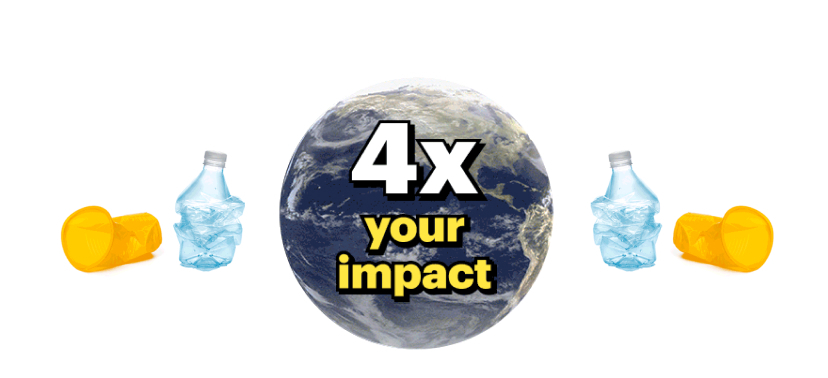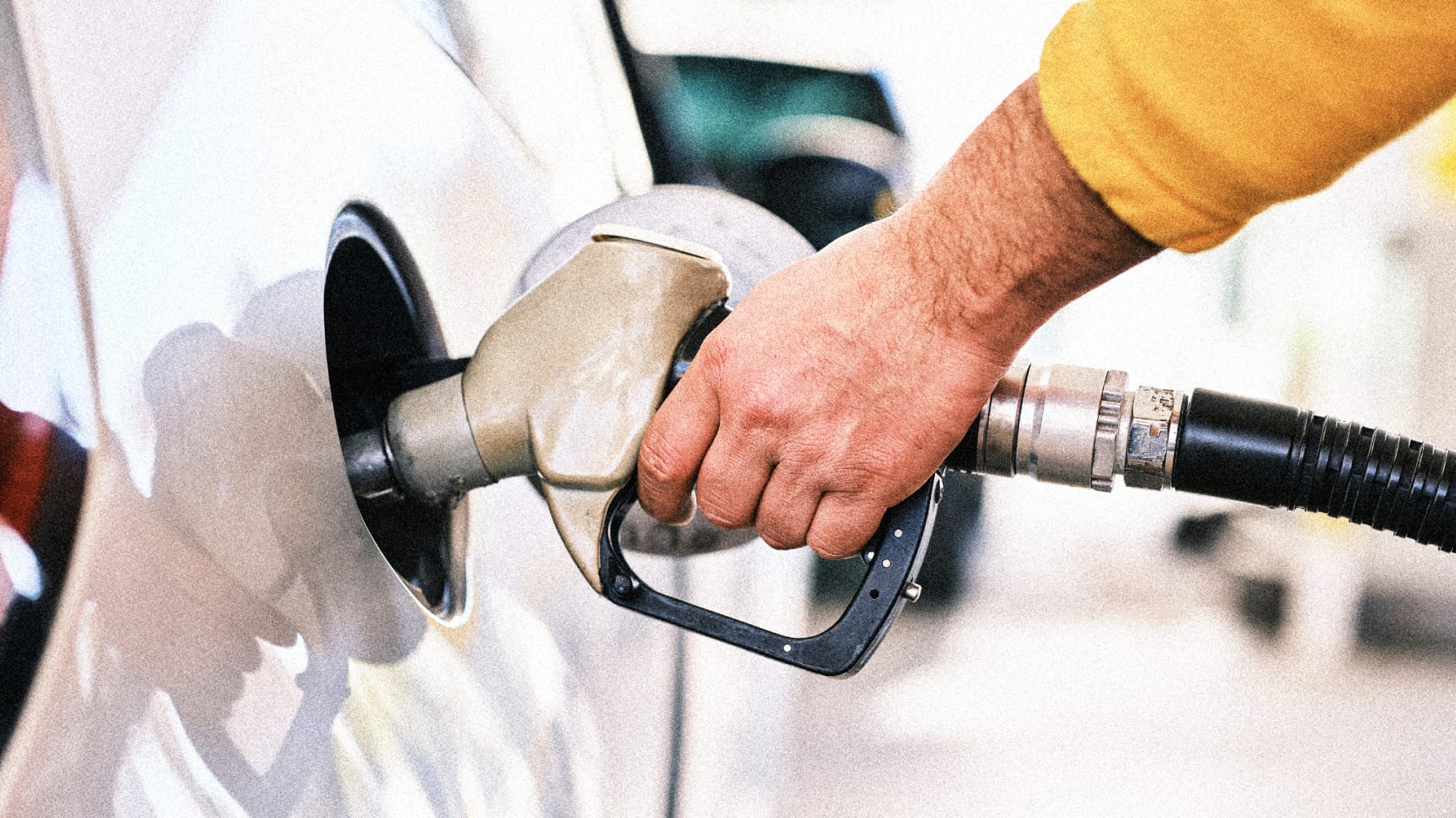ClimateVolunteer Story
When Ginny Marcille-Kerslake looks at the damage to her community, what’s most upsetting is how Sunoco/Energy Transfer Partners (ETP) lied to her.
“You’ll never even know we were here,” is what the fossil fuel corporation said, according to residents who were talked into getting on board with their underground drilling plan for the Mariner East 2 and 2X pipelines, which would transport highly explosive liquids right through their community.
It’s become something of a sick punchline now that time has shown the havoc ETP would wreak on residents’ homes, yards, safety, and property values, not to mention their time, energy, and peace of mind. Initially, Ginny and her neighbors were willing to give the company the benefit of the doubt that drilling could be done safely. But then a chain of events occurred that proved how unsafe it really was, and Ginny credits Food & Water Action with teaching their community how to organize and grow their collective power.
Sunoco Causes Disaster Upon Disaster In Pennsylvania And Creates An Activist
The first time it became apparent that Sunoco had lied was when the trees got cut down across from Ginny’s yard. What was supposed to be a few trees suddenly turned into clearing the entire swath that had once offered shade, habitat, cleaner air, and beauty to Ginny’s neighborhood.
Then on June 22, 2017, Sunoco/ETP hit the aquifer underneath their neighborhood with their drilling. It caused copious amounts of water to flow down the hill, destroying the private wells residents rely on for drinking, cooking, and bathing.
Ginny, who had spent much of her career as a soil scientist, had a lot going on in her life with a new home textiles business (she says folks around town were starting to refer to her as “the apron lady”) and sons who still needed her presence. But when she saw how difficult it was to get straight answers from Sunoco/ETP, and how likely they were to keep dangerously drilling, Ginny knew she had to take on a new role — as an activist against the Mariner East pipelines.
Their Community Responds To Sunoco’s Blatant Disregard For Their Wellbeing
As Ginny reached out and assembled with other community members, she learned about how the pipeline was keeping them awake at night too. Parents of small children were terrified because the pipeline would run right underneath their play areas in the yard. Some neighbors had functional parts of their property, like sheds, cut off from their use for what would become years. The really sobering fear was how densely populated the area was and how many people would be hurt or killed if a pipeline explosion happened — which happened recently west of them in an area less populated, avoiding fatalities only by sheer luck. How would one hospital’s burn unit handle 500 children at once if they needed to? If an explosion occurred, how would they evacuate the senior living residents with a pipeline running directly alongside their windows?
So Ginny and her neighbors got to work. They worked with Senator Andy Dinniman to get temporary halts to the drilling. They pursued longer-term moratoriums, too. They bird-dogged ETP every time something went wrong — like the times ETP didn’t self-report as they’re required to do when sinkholes occurred on Lisa Drive. As community member Caroline Hughes retells it, a resident recorded the accident and reported it to the Public Utility Commission (PUC) after ETP had been given a chance to self-report and did not. When the resident spoke to a representative at Sunoco, they reportedly said, “Sunoco isn’t going to shut down Mariner because you asked them to.” Twenty-four hours later, the PUC forced them to shut it down temporarily.
Even now, it’s hard to get straight answers from ETP. Shortly after the corporation began hydrostatic testing in mid-2018 to look for leaks, Ginny found a strange accumulation of water in front of her yard. She had a representative from ETP out to look at it. He told her that if it had been a leak from the testing it would have appeared green. Ginny pointed to the green-tinged water and asked, “You mean like this?” He then outrageously claimed it had to be algae — even though it was only about a day after the water appeared. So Ginny and her neighbors keep fighting to get ETP and this drilling out of their community. The residents cannot trust them — period.
Stopping this dangerous pipeline is also about stopping the fossil fuel industry from turning Southeastern Pennsylvania into “Houston on the Delaware.” They’re planning for a major build-out of toxic infrastructure that will make entire communities sick and further destabilize our climate.
‘The Pipeline Lady’ Shares How Food & Water Action Made A Difference
These days, because of her relentless work, Ginny is also known around town as “the pipeline lady.” Ginny says Food & Water Action gave her and other community members the skills they needed to maximize their fight against ETP, like when they teamed up to elect officials in the local legislature who would fight back against the pipelines. She recalls:
Last year one of the townships on the pipeline route realized that they would have to change their local government in order to get representation for the community against Mariner East and they didn’t really know how to do that until Food & Water Action came in and helped them organize their community, recruit volunteers, and get people out to vote. As a result of what Food & Water Action helped them do, the community was wildly successful on Election Day. It really couldn’t have been possible without Food & Water Action and their organizing abilities.
One of the organizers, Sam Rubin, recently asked me to tell someone what he does for a living.
I said, “Sam, you get people to do things without them realizing you’re getting them to do it.”
And that’s how we were able to flip that township.
And that was just the start. Building from that momentum, Ginny managed the campaign of Danielle Friel Otten for State Representative, one of her neighbors and new friends in this fight. Danielle decided to run after meetings with her state representative left her feeling that her voice and that of her community were not being heard. She learned her representative and others in Harrisburg accept large donations from the oil and gas industry. With Ginny managing her campaign, and Food & Water Action lending people power and consulting to the campaign, Danielle Friel Otten successfully won the seat and will represent her community’s interests from that powerful position.
We’re In This Together, In Ginny’s Neighborhood And Beyond
Ginny and her neighbors are fighting back, and have carved out important wins along the way. It’s still a David vs. Goliath kind of battle, though, and they’ll need support along the way — just like communities all over America that Food & Water Action empowers to stand up to corporations like ETP.
These fights don’t just affect one person — they affect entire communities, states, and the future of our country. And though Ginny’s story involves the Mariner East 2 pipeline, it reflects the kinds of fights going on all over the country. We’re in this together and we’re making lasting changes that will secure safe climates and environments for our future generations.
UPDATE: In the years since we first published this story, Ginny has come to work with Food & Water Action as a part of the staff. It’s incredible to see how passionate people fighting polluting corporations grow stronger in their tenacity to win.
Will you chip in to help our work with fighters like Ginny? Your contributions are what support these true heroes on the ground with the tools they need to fight the fossil fuel industry.
Every donation helps us fight for a livable future.

Time to face it~it’s people or plastics.~We can’t have both.
Become a plastic pollution fighter this Earth~Day and have your gift MATCHED $3-to-$1!


